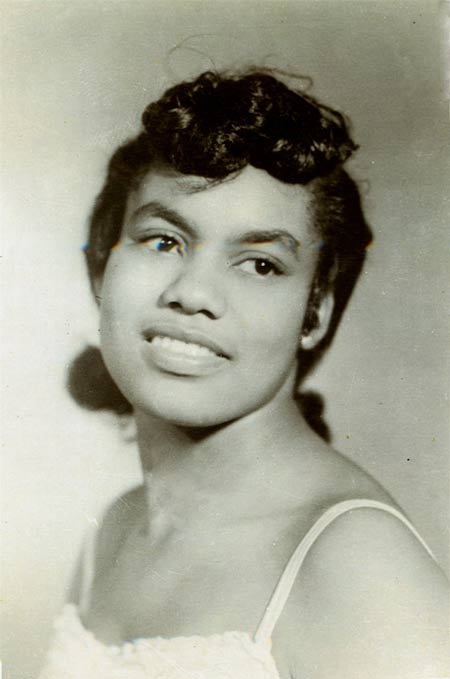
This very special event, “Created Equal: 60th Anniversary of the TLH Lunch Counter Sit-ins,” will highlight this important local civil rights history — what happened here changed the world — giving particular emphasis to the role played by Patricia Stephens Due, a FAMU student leader who spearheaded these 1960 protests along with her sister Priscilla Stephens Kruize through the local chapter of the Congress Of Racial Equality (CORE).
Patricia, who is arguably the most significant female civil rights leader after Rosa Parks, had her eyes badly damaged during one of these protests when a police officer shot off a tear gas canister in her direction (forcing Patricia to wear sunglasses the rest of her life). Undeterred, Patricia went on to organize the first ever “jail-in” of the civil rights movement, as they and a handful of other protesters — including 16-year-old high school student Henry Steele — refused to post bail after being arrested, preferring instead to call attention to their cause by remaining in the Leon County Jail for seven long weeks. The jail-in succeeded in generating considerable national attention. For example, black baseball pioneer Jackie Robinson wrote about the protests in his newspaper column. (He also sent letters of encouragement and journals to the protesters to record their experience for history.)
“History happens one person at a time.”
Patricia Stephens Due
Former First Lady Eleanor Roosevelt organized several dinners (including one at the Waldorf Astoria in NYC) to raise funds to support the CORE students. In time, Tallahassee’s lunch counters, movie theatres, and swimming pools all were integrated, thanks in no small part to the persuasive messaging of Patricia Stephens Due and her fellow CORE members.
Interestingly, a number of white students from Florida State University collaborated with Due and her FAMU friends, often performing tasks that they could more easily execute. For example, at the lunch counter sit-ins, a white male FSU student would first claim a seat at the counter and then wait for a strategic opportunity to arise when he could vacate his seat just as a black FAMU student was walking by and could claim it. This interracial cooperation and shrewd division of labor offers yet another illustration of how skillful the CORE members were in advancing their cause.
These students offer inspiration and a successful model of persuasion — they held a mirror to their neighbors, asking if they were indeed living by their values, of the Golden Rule.
We believe that every school child in our hometown should be able to recite the story of Patricia Stephens Due and her sister Priscilla Stephens, and of a sixteen-year-old Rev. Dr. Henry Steele — asking that we strive to get ever closer to the idea that, indeed, “we hold these truths to be self-evident that all men are created equal.”
You can read about Patricia Stephens Due’s life and legacy in The New York Times.
Get Due’s memoir, co-authored by daughter Tananarive (who will be joining us), “Freedom in the Family” here.
Learn more about CORE here.
___________________
Would you like to carry on in Patricia Stephens Due’s cause?
Learn about our 5-Foot Challenge grant which awards $500 to propel an idea that honors her legacy. Learn more about this grant here. The submission deadline is Friday, April 3, 2020.
These grants are supported by Leon County Government through our project Club of Honest Citizens.

